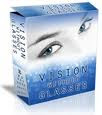There are many options for glaucoma treatment , including eye drop medications, surgery, laser surgery, or other minimally invasive procedures that can reduce your eye pressure and risk for vision loss caused by glaucoma.
Talk to your doctor about your glaucoma treatment needs
Your doctor will recommend a glaucoma treatment program based on your clinical profile and needs. Depending on how high your eye pressure is and how long you have had glaucoma, your eye doctor may recommend a combination of glaucoma treatments. If you have difficulty remembering to take your medication or affording monthly refills, it is important to discuss these issues with your eye doctor. It is also important to discuss other medications or pills you may be taking for heart disease, diabetes, asthma or other medical conditions.
Glaucoma eye drop medications
Glaucoma eye drop medications are the most common treatments for high eye pressure and glaucoma. When taken as directed, glaucoma eye drops reduce high eye pressure by either decreasing the amount of fluid created within the eye or by helping the fluid drain from the eye.
Glaucoma eye drop medications can be absorbed into your system and may interfere with other types of medication you are taking. If you are taking other medications or pills for heart disease, diabetes, asthma or other medical conditions, it is important to tell your eye doctor.
What happens if I skip a dose of my glaucoma medication?
If your doctor prescribes glaucoma eye drops, you must follow the directions very carefully. You may be tempted to skip doses because of side effects, difficulty in getting the drops in your eyes, cost, forgetfulness or lack of symptoms. If you do not take your glaucoma medication exactly as directed by your eye doctor, your eye pressure may suddenly rise and fall. These changes in eye pressure can be dangerous to your eyesight and may increase your risk of vision loss caused by glaucoma.
Treating cataracts and glaucoma
If you have both cataracts and glaucoma, ask your eye doctor about combined modern surgical techniques that can reverse the effects of cataracts while reducing high eye pressure, the number one risk factor for loss of eyesight caused by glaucoma. While there is no cure for glaucoma, surgical options combined with proper medical treatment and routine eye exams may reduce the risk of vision loss.
Glaucoma surgery
There are several types of glaucoma surgery, including invasive trabeculectomy, trabeculotomy and minimally invasive surgical options. Your eye doctor may recommend a surgical procedure if your eye pressure is not under control with your current treatments, or if he or she would like to reduce your need to take glaucoma eye drop medications.
Possible side effects of glaucoma surgery include cataract, problems with the cornea, and infection or inflammation inside of the eye.
See related article:
How to Reduce Glare - Tips to Prevent Eye Strain Caused by Glare
Eye Iridology
Cataract Symptoms
Tuesday, May 18, 2010
Subscribe to:
Post Comments (Atom)




No comments:
Post a Comment